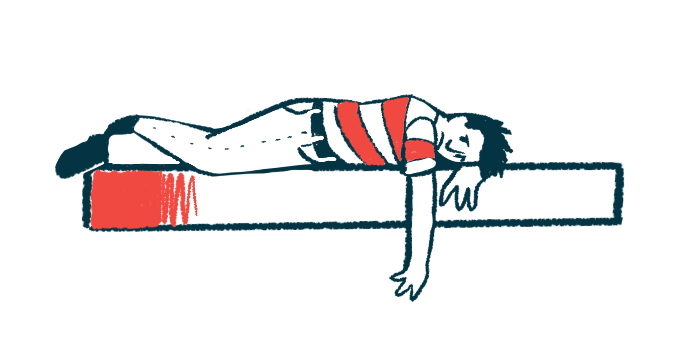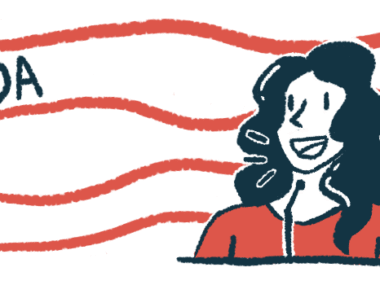Depression, Anxiety in CMT Patients Likely Undermedicated, Study Says
Nearly half of study's patients weren't taking needed mental health medicine
Written by |

Moderate to severe anxiety, depression, and general distress affect up to 25% of people with Charcot-Marie-Tooth disease (CMT), according to data from an Italian national registry.
Having a more severe disease correlated with experiencing moderate to severe depression and general distress. Nearly half of patients with mental health conditions were not receiving any medication for their symptoms.
“Taking care of psychological status must become part of the general assessment of CMT patients and, when needed, proper treatment administration may alleviate their disease burden,” the researchers wrote.
The study, “Anxiety and depression in Charcot-Marie-Tooth disease: data from the Italian CMT national registry,” was published in the Journal of Neurology.
CMT is an inherited neuromuscular disorder that affects the peripheral nervous system, which controls movement and sensation in the limbs. Common CMT symptoms include muscle weakness, loss of sensation in the extremities, foot deformities, and reduced reflexes.
“Mood disorders are among the least studied comorbidities [co-existing conditions] in CMT,” the scientists wrote. “This issue may be particularly important since untreated mood disorders may worsen patients’ own perception of health and neurological status.”
In this study, a team led by researchers at the Fondazione IRCCS Istituto Neurologico Carlo Besta in Italy assessed depression and anxiety among a large group of CMT patients across Italy. Participants were recruited from a national CMT registry, which was created in collaboration with Italian patients’ associations.
Healthy participants, who were friends and unaffected relatives of the CMT participants, served as controls. The two groups were matched for age and sex.
Depression and anxiety were evaluated using the Hospital Anxiety and Depression Scale (HADS), a self-assessed questionnaire containing seven statements on anxiety-related symptoms (HADS-A) and an equal number on depression (HADS-D). Each statement is scored from 0 to 3, with total scores (HADS-T) ranging from 0 to 42. Higher scores indicate more severe symptoms.
HADS is commonly used in hospital settings and in neurological conditions such as multiple sclerosis and Parkinson’s disease.
The study and its results
For this study, the researchers considered moderate to severe anxiety/depression when HADS-A and HADS-D scored 11 of higher, and moderate to severe general distress for a HADS-T of 22 or higher.
In total, the questionnaire was completed by 252 CMT patients (mean age 47.1) and 56 controls. Almost half of the patients had CMT1A (46.4%), the most common CMT subtype, followed by CMTX1 (8.3%), CMT1B (7.1%), CMT21I/CCMT2J (5.6%), CMT2A (3.2%), and CMT4C (1.9%).
No significant differences were found for anxiety, depression, and general distress between the general Italian population and the participants in this study. Women in both CMT and control groups had higher (worse) HADS scores for anxiety and general distress.
Among 234 CMT patients with available information on medication use, 19.2% (45 patients) used antidepressants and/or anxiolytics (anti-anxiety medications). A total of 28 patients (12%) took these medications daily, and 164 (70.1%) used analgesics/anti-inflammatory treatments more than once a week.
A quarter of the patients (25.4%) had moderate to severe anxiety, and 10.3% had moderate to severe depression. Moderate to severe general distress was found in 14.2% of CMT participants.
In contrast, only 1.8% of those in the control group had moderate to severe depression and 3.5% moderate to severe general distress, significantly lower percentages when compared with the CMT group.
However, moderate to severe anxiety was found in 14.4% of controls, which was not significantly different from CMT patients. No differences were found in anxiety, depression, and general distress among people with different CMT subtypes.
CMT patients with moderate to severe depression and general distress had more severe disease, as assessed by the Charcot-Marie-Tooth Examination Score (CMTES).
Also, patients with anxiety and general distress more often complained of sensory symptoms and relied significantly more on analgesic and anti-inflammatory medications compared with patients without these symptoms, 80% versus 63%.
The researchers noted that about half of patients with anxiety, depression, and/or general distress did not take any medication for these disturbances. Medication was used by 35% of patients with anxiety, 52% with depression, and 43% with general distress.
Still, the use of anxiolytics/antidepressants and analgesics/anti-inflammatory drugs was higher among patients with these symptoms.
Overall these findings show that “an appreciable proportion of CMT patients shows general distress and depression,” the researchers wrote. “Although depressed/distressed patients took drugs acting on anxiety and mood more frequently than controls, still one half of them is not treated.”






